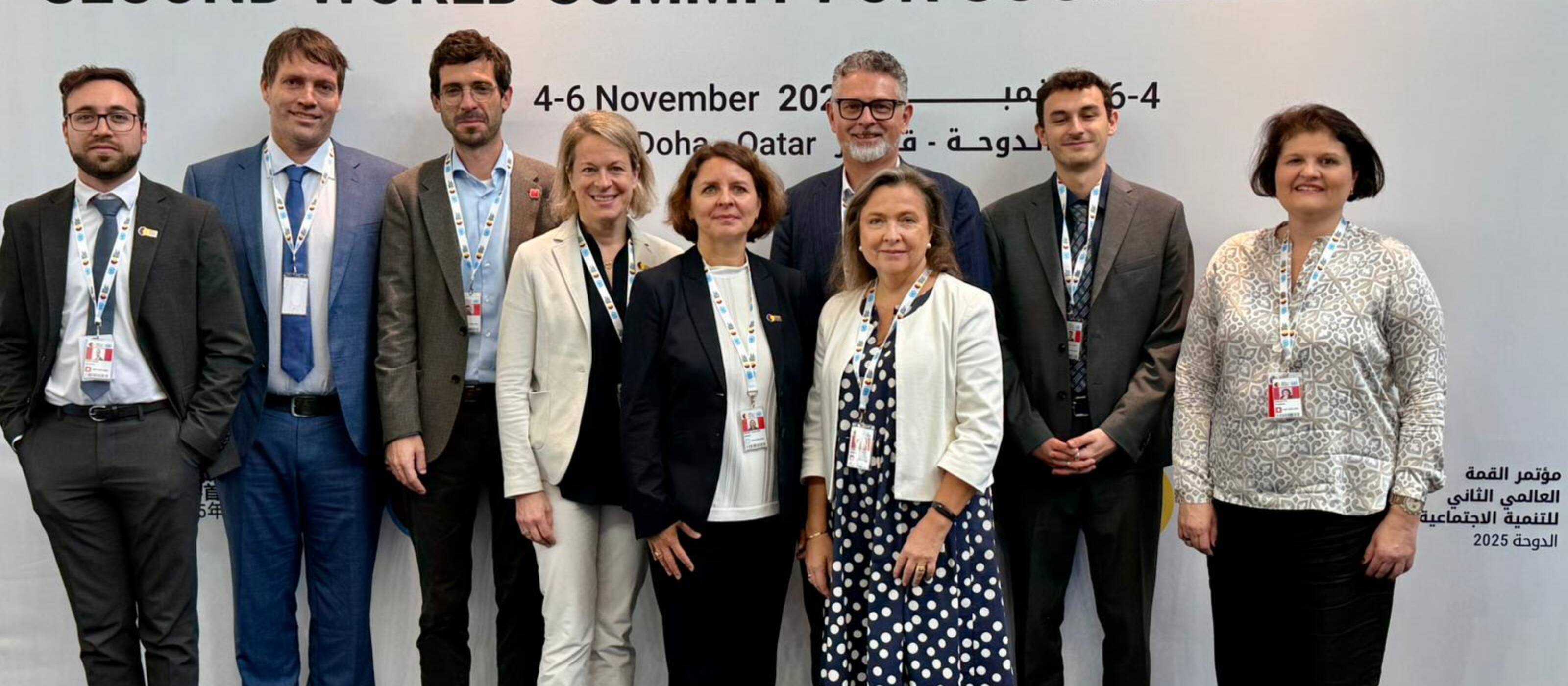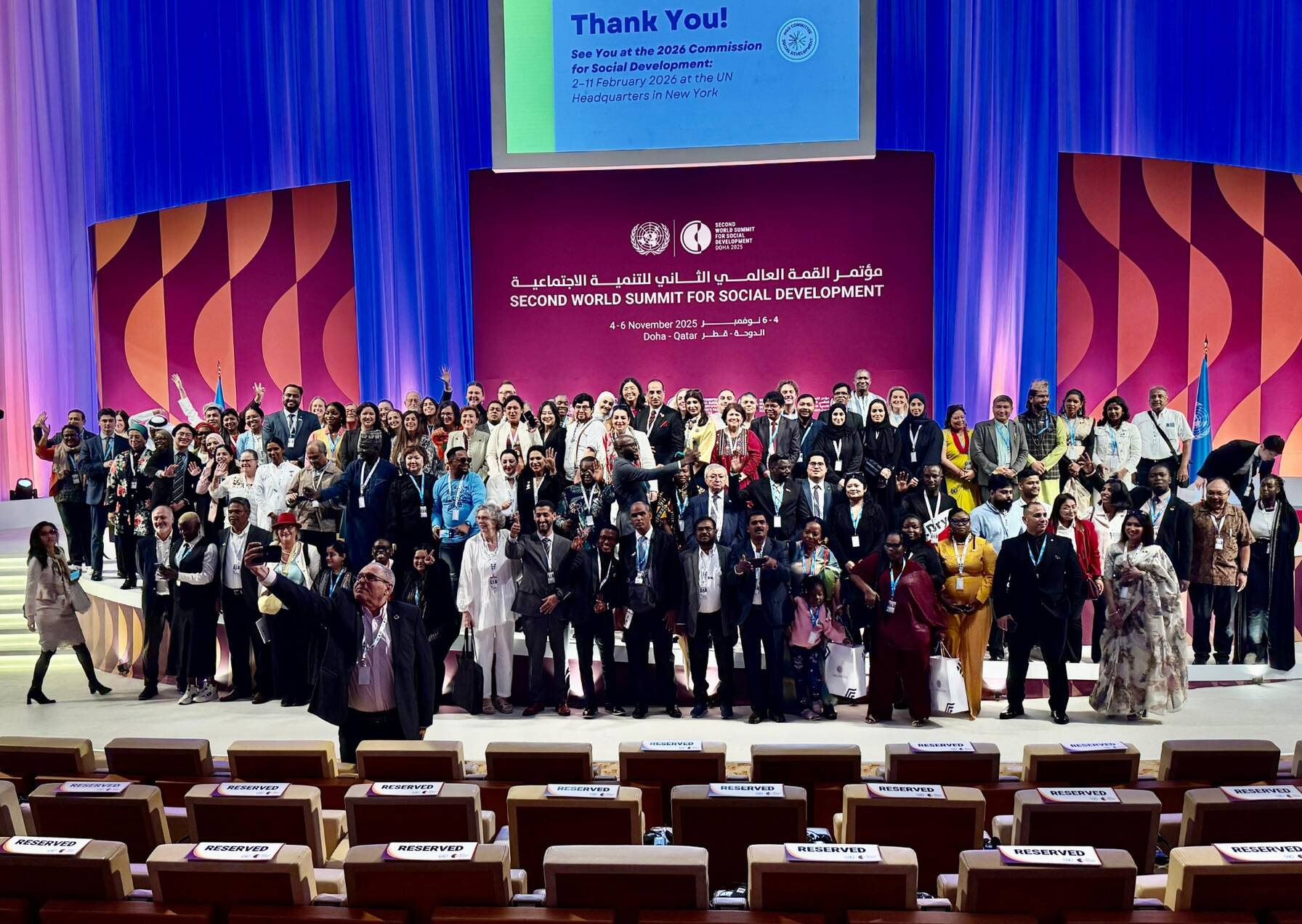

NGOs are Important to the World’s Social Development
The UN hosted its second World Summit for Social Development in the Qatari city of Doha in early November. Caritas Director Peter Lack was there representing civil society as part of the official Swiss delegation. We asked him what he made of the event.
How important was this UN World Social Summit?
The first UN World Social Summit in 1995 saw the signing of the groundbreaking Copenhagen Declaration, which put social development high on the agenda of the global community. While significant progress in reducing poverty has been made over the past 30 years, we have to acknowledge that there are still around 817 million people living in extreme poverty. Achieving social justice requires more than just economic growth—that’s been stressed time and again. And the World Social Summit serves to remind us of that fact. In her address, the president of the UN General Assembly Annalena Baerbock called this conference crucial for the “last mile” in efforts to build resilient societies capable of bridging social divides.
You were there representing civil society as part of the Swiss delegation. What role did non-governmental organizations – NGOs – play at the conference?
NGOs had a strong presence. That was very evident at the Civil Society Forum. There was a lot of affirmation on the part of government representatives in terms of how important civil-society organizations are. They said they are key to finding good solutions to policy issues and helping put those solutions into practice. I wondered whether those were nice but ultimately empty words and whether they’d actually be followed by action, i.e. whether civil-society organizations would actually get a seat at the table and have their views taken seriously. Fortunately, there were people who took the floor during the debates and raised this very point. It became clear that social development has to put people’s needs first and there must be a link between the global and the local. We NGOs have a direct line to disadvantaged groups, and we make their voices heard.
How can that be put into practice so we’re not just left with empty words?
Governments all over the world need to make a strong commitment that civil-society organizations like ours will retain our place and they will work with us. NGOs have played a very big part in the fight against poverty over the past 30 years. That was stressed again and again. And the Doha Declaration that was agreed to at the summit reaffirms the continued need for the important voice and role of NGOs.

What stance did Switzerland take at the summit?
Switzerland failed to send anyone from the Federal Council to the World Social Summit, which is a great shame and—unfortunately—not a good sign. But the head of the Swiss delegation, Ambassador Valérie Berset Bircher from the State Secretariat for Economic Affairs SECO, gave what I thought was a remarkable speech. She said that, although there have been some successes since the first World Social Summit in Copenhagen in 1995, we still have to be honest with ourselves and list our shortcomings. She also highlighted how multilateralism is currently in crisis. She said multilateralism is vital for beating poverty and it has to be given fresh momentum with the declaration signed at the summit.
What were discussions like within the Swiss delegation?
Very good and informative. The conversations I had with my fellow delegates showed me that the task at hand has to be coordinated between the government, the private sector, and the NGOs. We share many of the same goals and are capable of complementing one another. I’m sure of that. Switzerland isn’t where it needs to be yet either, not when it comes to social development and eliminating poverty. And it can’t simply take a back seat when it’s time to show international solidarity toward poorer countries.
What were you particularly struck by at the summit?
The topic of digitalization was ever-present. The challenge lies in making sure it doesn’t create even more divides between the Global North and the Global South or between men and women. Although technology offers massive opportunities for social development, it can also amplify and perpetuate inequalities. All in all, we need to be very aware that not everyone is in a position to benefit from digitalization.
What has given you food for thought?
Even though the importance of NGOs has been highlighted repeatedly over the past few days, it was also clear that many of them are having to fight for their very existence and assert themselves. Their contribution isn’t visible enough. NGOs aren’t always popular given that they point out uncomfortable things. This is why they and their very existence are sometimes questioned or their actions and motives are sometimes portrayed in a bad light. But their voices are necessary if we’re going to make progress. In her speech, Ambassador Berset Bircher called social development the cement of society. NGOs do a lot for cohesion.
So what happens next?
The World Social Summit is just a beginning or, as Annalena Baerbock put it, Doha is just one milestone on the road to a fair global future in which everyone has equal rights.
Header image: The Swiss delegation at the Second World Summit for Social Development was led by Ambassador Valérie Berset Bircher from the State Secretariat for Economic Affairs SECO (fifth from left). © Caritas Switzerland